Keynote Speeches
Canada-US relations – Canada Needs to Take Action for Global Competitiveness:
Canada needs a strong, comprehensive economic strategy so that it doesn’t have to stand up to Trump/the USA, or any other nation, in the future.
Reducing Canada’s vulnerability requires a tighter partnership between industry and government to set the plan and execute.
Canadian companies should be busy finding new customers / trade partners. This is what Canada should have been doing over the last few decades. Next best time to start? Now.
Canada feels threatened because they haven’t adequately diversified and hedged their risk. Trump’s tactic is using America’s leverage to the activate and expedite action. He made promises to his voters and he is showing that he is delivering. His goal is to show that he is protecting America.
Problem: Canada is still being complacent. Why hasn’t Canada diversified its trade partners yet? Having 76% of exports going to one customer, the USA, is high risk and bad business. (yes, its easy)
Problem: Canada is not learning and adapting fast enough to the new global competitiveness dynamic and repeated occurrences over the last decade.
On the positive side: This stress could actually be good for Canada, forcing it to change towards achieving economic security, greater competitiveness and ultimately strengthen its leverage and reduce the impact of potential trade threats.
Solution: keep negotiating with Trump and working together WHILE diversifying its country-customer base.
– Government funding should require this as part of business plans and funding approvals. ( great to see provinces facilitating internal trade with each other.
This dynamic is the new normal. Get used to it, adapt and adjust your economic policies and trade practices.
– The relationship is not going to get ‘fixed’. Accept it for what it is, do what’s best for the ‘kids’ (population), and keep dating to find other partners.
Check out Amy’s TEDx talk back in 2017 when she warned about this new world order. It’s no longer just about having friends and allies, but it’s about governments and companies adapting their business models and innovation models to stay competitive and gain leverage.
New geopolitical dynamics require a new playbook.
How will you change your game to win?
Uncertainty is a consistent theme of discussion among business leaders around the world.
Geopolitical tensions, technological disruptions, downward pressures on financing, shifting consumer behaviors, innovation and productivity gaps – all add layers of complexity to short-term decision-making and longer-term planning. Leaders are also grappling with how to create strategic competitive positions amidst these factors.
How does AI help or hinder the finance and insurance sector and their clients? Should you be concerned about the rise of emerging players like India and China or should you consider partnering? What does the future of work look like in your companies and in your clients’ organizations?
Amy will discuss the geopolitical dynamics influencing global trade and financial markets and introduce strategies, issues and answers that companies can use to navigate this changed landscape, protect against imbalance and increase their chances of success.
While there are exponential leaps in 5G connectivity, quick accommodation of virtual work and availability of remote services online, we’re not at the point of full adoption yet. Many virtual organizations weren’t really technologically ready from a security perspective for example. And many banks still don’t provide banking statements electronically longer than 3 months ago. What’s happening?
Technology creation evolves faster than technology adoption. The push for digital transformation should really be considered digital evolution. As an active member of the tech community, Amy Karam shares how you can make small, ongoing incremental changes to evolve on your way to digital transformation.
The new work paradigm has opened eyes of employees and employers to new options and infrastructure requirements. Customers are also now aware of different ways to be serviced remotely – is your institution ready to do that? Gain a competitive edge by digitizing your customer fulfillment strategy – won’t take much to get ahead of others as you continue to evolve.
Geopolitics are not just for politicians – governments, business and trade organizations need to incorporate it into their strategic plans as they look to diversify their approaches.
Expert in emerging markets, Amy Karam shares evidence that the G7 democracies no longer rule, it’s now the G20. Emerging market players now have a much bigger influence on global trade, including China, Russia, India, as well as smaller nations. With large populations, they are quickly climbing the economic development ladder, and are catching up to (and sometimes surpassing) other developed nations.
Our economies are intertwined. Supply and value chains are concentrated in too few countries, which lends to economic and security risks. The pandemic highlighted critical gaps that have been accumulating for many years and the need for the Western nations to focus on maintaining and growing their innovation advantage in order to secure/re-secure global competitiveness. To accomplish this, Karam proposes ways that the West can approach innovation in different ways.
Public/private collaboration also needs to shift to a whole new level, as nations seek to thrive in this new global economy.
Hear about where we’ve been, how we got to where we are today, and what we need start or continue to do in the future to secure our competitiveness, economic and national security.
- The West has been resting on its laurels and its ‘innovation advantage’ status from past decades.
- Being the best is static – becoming better (like emerging competitors are) is growth
- West has been naïve about collaboration with and knowledge transfer to emerging countries like China and others – now they are surpassing us in some areas.
- What was really behind the lobbying of other countries to ban Huawei, other than national security concerns?
- We need to shift mindset from innovation R&D to innovation commercialization – intellectual to monetization mindset. Is Canada just too comfortable? Are we looking at true Business Model Innovation?
Drawing on content from her best-selling book, The China Factor, Karam equips Western audience with a practical framework for competing successfully in today’s ever–changing global markets.
Based on customers in over 50 countries, and Karam’s experience competing with Huawei when she led a competitive intelligence and sales support program at Cisco, you will learn why a premium product, may not be the key to winning business in foreign markets, and you’ll discover the new critical factors that contribute to success in both established and emerging markets. Disruptive competitors are transformed from threats to examples as you learn to recognize opportunities for re–evaluation, and shift your strategy to stay ahead of the curve.
Key Takeaways:
- How to become innovative in how you do business globally
- How your business can become innovative at innovation



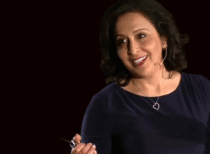

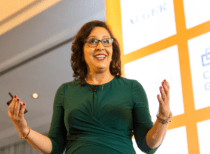
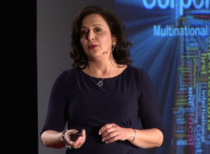
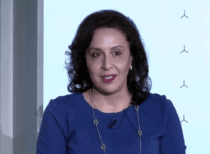

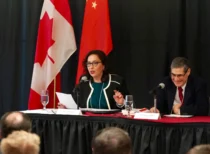








Similar Speakers 123